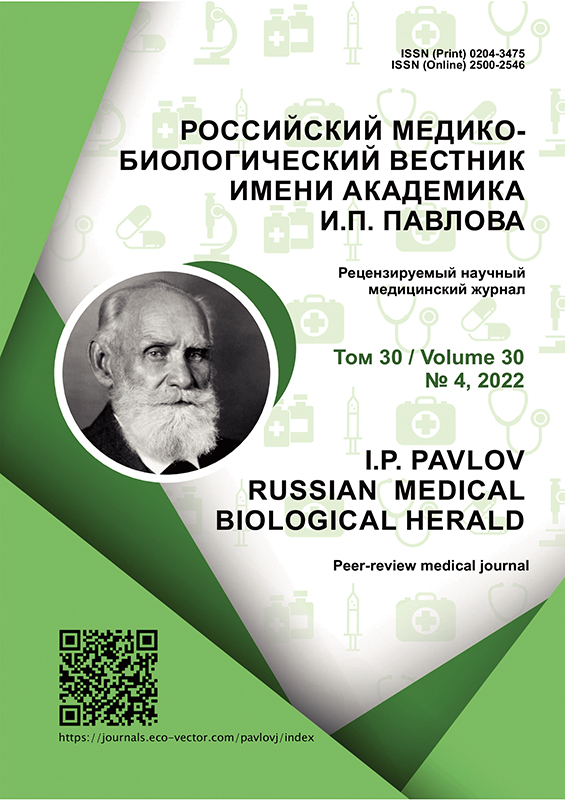Сравнительный анализ личностных и ценностно-смысловых характеристик наркологических больных и здоровых лиц (абстинентов) в аспекте третичной профилактики
- Авторы: Кордубан В.В.1, Бузик О.Ж.1,2, Агибалова Т.В.1,2,3
-
Учреждения:
- Московский научно-практический центр наркологии
- Российская медицинская академия непрерывного профессионального образования
- Российский университет дружбы народов
- Выпуск: Том 30, № 4 (2022)
- Страницы: 519-529
- Раздел: Оригинальные исследования
- Статья получена: 12.07.2022
- Статья одобрена: 04.10.2022
- Статья опубликована: 28.12.2022
- URL: https://journals.eco-vector.com/pavlovj/article/view/109308
- DOI: https://doi.org/10.17816/PAVLOVJ109308
- ID: 109308
Цитировать
Аннотация
Введение. Достижение абсолютной трезвости, её поддержание и сохранение являются основными задачами этапа третичной профилактики наркологических больных.
Цель. Провести сравнительный анализ личностных и ценностно-смысловых характеристик наркологических пациентов с синдромом зависимости от психоактивных веществ с такими же характеристиками здоровых лиц без значимого опыта употребления алкоголя и других психоактивных веществ (абсолютные и относительные абстиненты).
Материалы и методы. Исследован возраст, пол, уровень образования, наличие опыта употребления никотина в прошлом и настоящем, ведущие копинг-стратегии, уровни религиозности и магического мышления.
Результаты. Выявлены два диаметрально противоположных образа трезвенника: на одном полюсе это лица с более высоким уровнем образования и более низкими уровнями религиозности и магического мышления, а на другом полюсе — лица с низким уровнем образования, но более высокими уровнями религиозности и магического мышления. Для группы абстинентов в целом характерно отсутствие опыта употребления никотина.
Заключение. Учёт личностных и ценностно-смысловых характеристик помогает более точно определить цели и направления психотерапевтических и реабилитационных мероприятий, дифференцировать пациентов по программам реабилитации, повышает уровень мотивации и приверженности к проводимому лечению, что, в свою очередь, приводит к более длительной и стабильной ремиссии.
Полный текст
Об авторах
Владимир Васильевич Кордубан
Московский научно-практический центр наркологии
Автор, ответственный за переписку.
Email: vlad-cord@yandex.ru
ORCID iD: 0000-0002-9093-4514
SPIN-код: 6057-9753
ResearcherId: ADS-1726-2022
врач психиатр-нарколог, заведующий амбулаторным отделением медицинской реабилитации
Россия, МоскваОлег Жанович Бузик
Московский научно-практический центр наркологии; Российская медицинская академия непрерывного профессионального образования
Email: ozhbuzik@gmail.com
ORCID iD: 0000-0001-9470-6781
SPIN-код: 7140-5795
д.м.н., доцент
Россия, Москва; МоскваТатьяна Васильевна Агибалова
Московский научно-практический центр наркологии; Российская медицинская академия непрерывного профессионального образования; Российский университет дружбы народов
Email: agibalovatv@mail.ru
ORCID iD: 0000-0003-1903-5265
SPIN-код: 2859-1293
д.м.н., профессор
Россия, Москва; Москва; МоскваСписок литературы
- Киржанова В.В., Григорова Н.И., Киржанов В.Н., и др. Деятельность наркологической службы в Российской Федерации в 2017–2018 годах: Аналитический обзор. М.; 2020.
- Зыков О.В., ред. Профилактика патологических форм зависимого поведения. Т. III. Лечебная субкультура: технологии профилактики рецидива (третичная профилактика). М.; 2010. С. 41.
- Бехтель Э.Е. Донозологические формы злоупотребления алкоголем. М.: Медицина; 1986.
- Потребление алкоголя в России. Социологический анализ [Интернет]. М.: Институт социологии РАН; 2011. Доступно по: https://www.isras.ru/publ.html?id=2384. Ссылка активна на 12 июля 2022.
- Копытов А.В., Объедков В.Г., Скугаревская Е.И. Когнитивная модель риска возникновения алкогольной зависимости в молодом возрасте // Здравоохранение (Минск). 2011. № 9. С. 42–46.
- Rosoff D.B., Clarke T.–K., Adams M.J., et al. Educational attainment impacts drinking behaviors and risk for alcohol dependence: results from a two-sample Mendelian randomization study with ~ 780,000 participants // Molecular Psychiatry. 2021. Vol. 26, № 4. P. 1119–1132. doi: 10.1038/s41380-019-0535-9
- Холмогорова А.Б., Гаранян Н.Г. Когнитивно-бихевиоральная психотерапия. В кн.: Боковикова А.М., ред. Основные направления современной психотерапии. М.: Когнито-Центр; 2000. С. 224–267.
- Докинз Р. Бог как иллюзия. М.: КоЛибри; 2016.
- Байрамова Э.Э., Ениколопов С.Н. Адаптация методики определения уровня магического мышления М. Экблада и Л.Дж. Чапмана на русскоязычной выборке // Психиатрия. 2016. № 1. С. 40–46.
- George L., Neufeld R.W. Magical ideation and schizophrenia // Journal of Consulting and Clinical Psychology. 1987. Vol. 55, № 5. P. 778–779. doi: 10.1037//0022-006x.55.5.778
- Eckblad M., Chapman L.J. Magical Ideation as an Indicator of Schizotypy // Journal of Consulting and Clinical Psychology. 1983. Vol. 51, № 2. P. 215–225. doi: 10.1037//0022-006x.51.2.215
- Брюн Е.А., Кошкина Е.А., Рычкова О.В., и др. Современные подходы в организации медико-социальной реабилитации наркологических больных. Методические рекомендации. М.; 2013.
- Игумен Иона (Займовский). Православная Церковь и программа «12 шагов». 2005. [Интернет]. Доступно по: http://metanoia.msdm.ru/programma-12-shagov.html. Ссылка активна на 12.07.2022.
- Кун Томас. Структура научных революций: М.: Прогресс; 1975.
Дополнительные файлы










